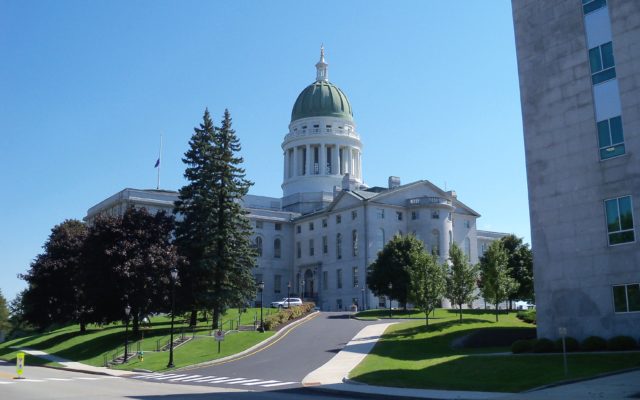
These 2024 Maine laws could affect your homestead
By Elizabeth Walztoni, Bangor Daily News Staff
A number of agriculture-related laws passed this year were geared toward farmers, such as new rules for salmonella prevention, and monitoring at commercial egg farms; support for well-drilling to respond to droughts; and a new task force finding ways to support the state’s dairy industry.
Those bigger items are often of interest to homesteaders, and may interact with them, but some other laws that passed can affect your homesteading activities directly in the new year — from your side business to the contents of your compost.
Here are a few that passed or went into effect this year.
Stronger shoreland zoning enforcement
Maine has had for decades laws limiting what landowners can do in the “shoreland zone,” or within 250 feet of the high water line for a wetland, lake, river, large pond or some streams.
A law that went into effect in April tightened penalties for violating those laws. If you violate shoreland zoning laws, you can be denied a permit for other activities until the violation is removed and fines paid, and a civil action can be filed against you to get that money back. If the commission wins that civil action, they can file a lien against the property for the costs.
Violations aren’t limited to building homes; they can apply to sheds, animal pastures, boat launches and landscaping such as riprap.
Repairing your own vehicles
Maine voters passed a “right to repair” law in November 2023, requiring manufacturers to give independent garages and vehicle owners the same data access and repair diagnostics they do to dealerships. It also requires manufacturers to eventually set up an online platform where owners can access data about their vehicles.
Increasingly computerized vehicles and limited permission from manufacturers has also been a problem for farm equipment repair in Maine, notably from John Deere tractors. Following a 2023 lawsuit against that company, farmers won the right to repair their tractors, although the Federal Trade Commission is now investigating its repair practices and farm equipment repair is still an issue for some farmers.
After Maine lawmakers passed a local resolve this spring, the Attorney General’s Office set up a group to make recommendations for a future law setting up a government entity, likely a commission, to make and enforce rules around the right to repair and data from automobiles. The existing law is set to take effect Jan. 5, although without their recommendations submitted yet, it’s not clear what’s in place to take effect. Task force findings should be submitted to the Legislature by late February.
More broadband
This was a big year for rural internet, and if you support your homestead by working from home, your kids need internet access for schoolwork or you have a small business, things could get easier for you. A resolve directing the state’s connectivity authority to expand broadband access for multiunit buildings was passed in March but hasn’t been signed into law yet.
In October, the authority announced it would offer satellite-based internet Starlink to anyone who doesn’t yet have internet service. That affects nearly 9,000 homes and businesses, the authority estimated at the time.
Reusable packaging
If you make some extra income by selling products from your homestead, you could have the option to take back and reuse packaging from customers or let them bring their own.
A March law should make that possible for products that aren’t food, along with shelf-stable food and some perishables. The Department of Agriculture, Conservation and Forestry will have to make sure its guidelines allow businesses these options along with the right to refuse containers that customers return, according to the bill text.
Human composting
You or a loved one could also become Maine-made compost for your garden or yard, thanks to a law legalizing human composting facilities here that took effect in August.
Licensed facilities put human remains in a heated chamber with wood chips or other organic matter until they decompose, then grind and sort bone fragments before returning the compost to mourners. There aren’t any facilities yet; some companies said this summer that Maine is on their radar for expansion. Until then, it’s also legal to have a body transported out of state to be composted and returned.
Other new laws will affect hunting and fishing in 2025.
You can read a recap of all of Maine’s lawmaking activity this year in the Legislative Digest of Bills and Summaries of Enacted Laws, released in June.